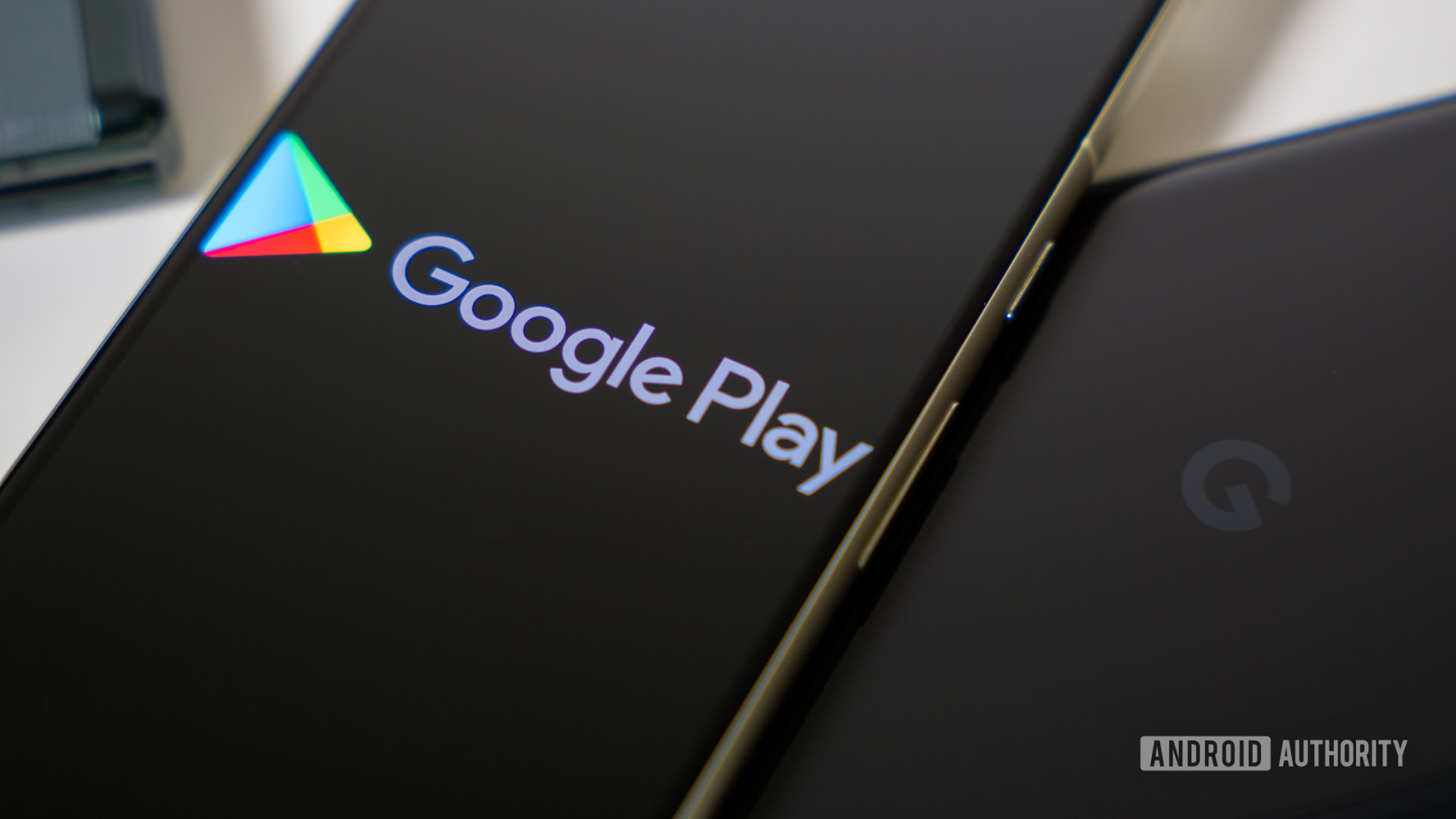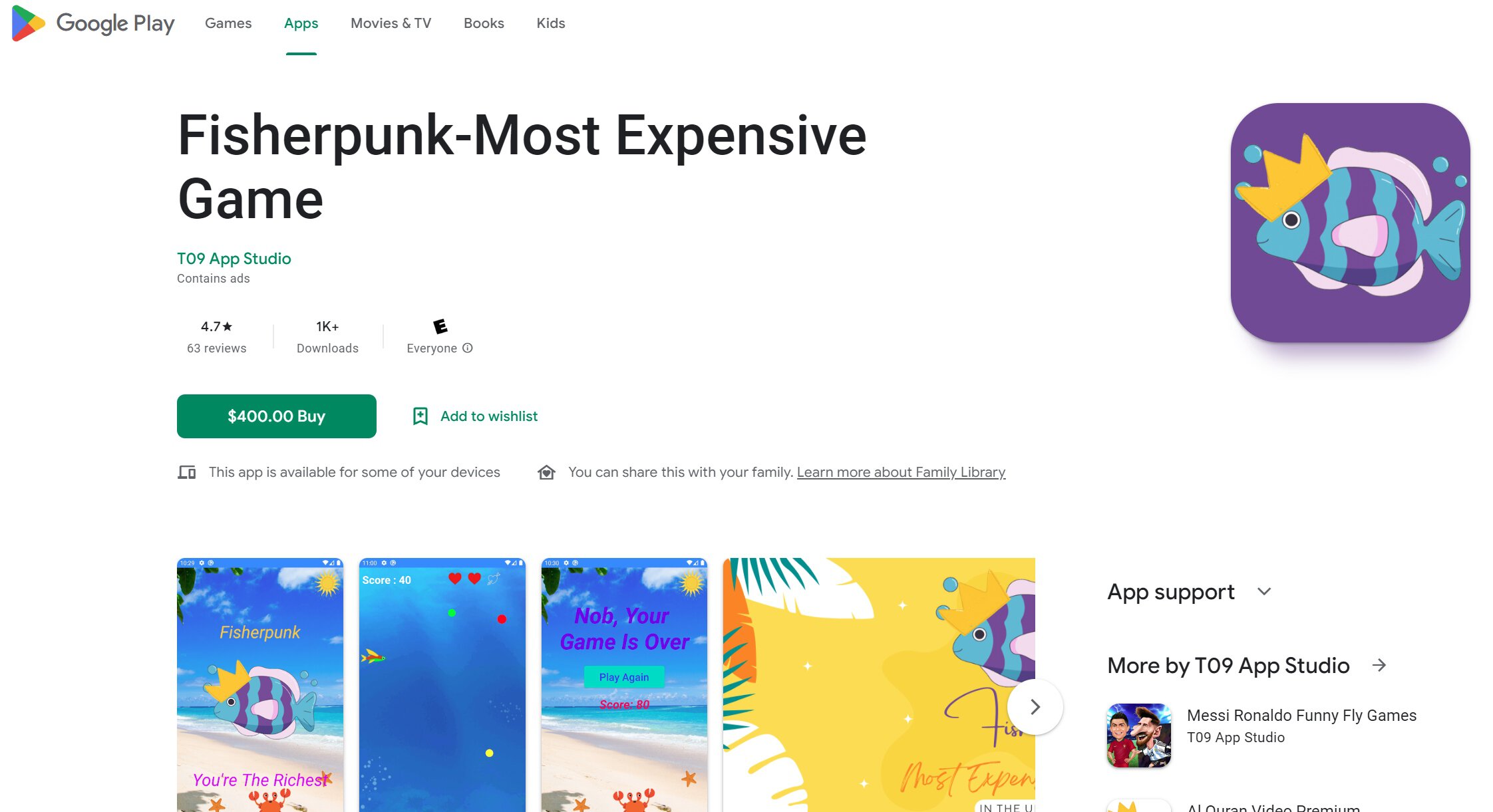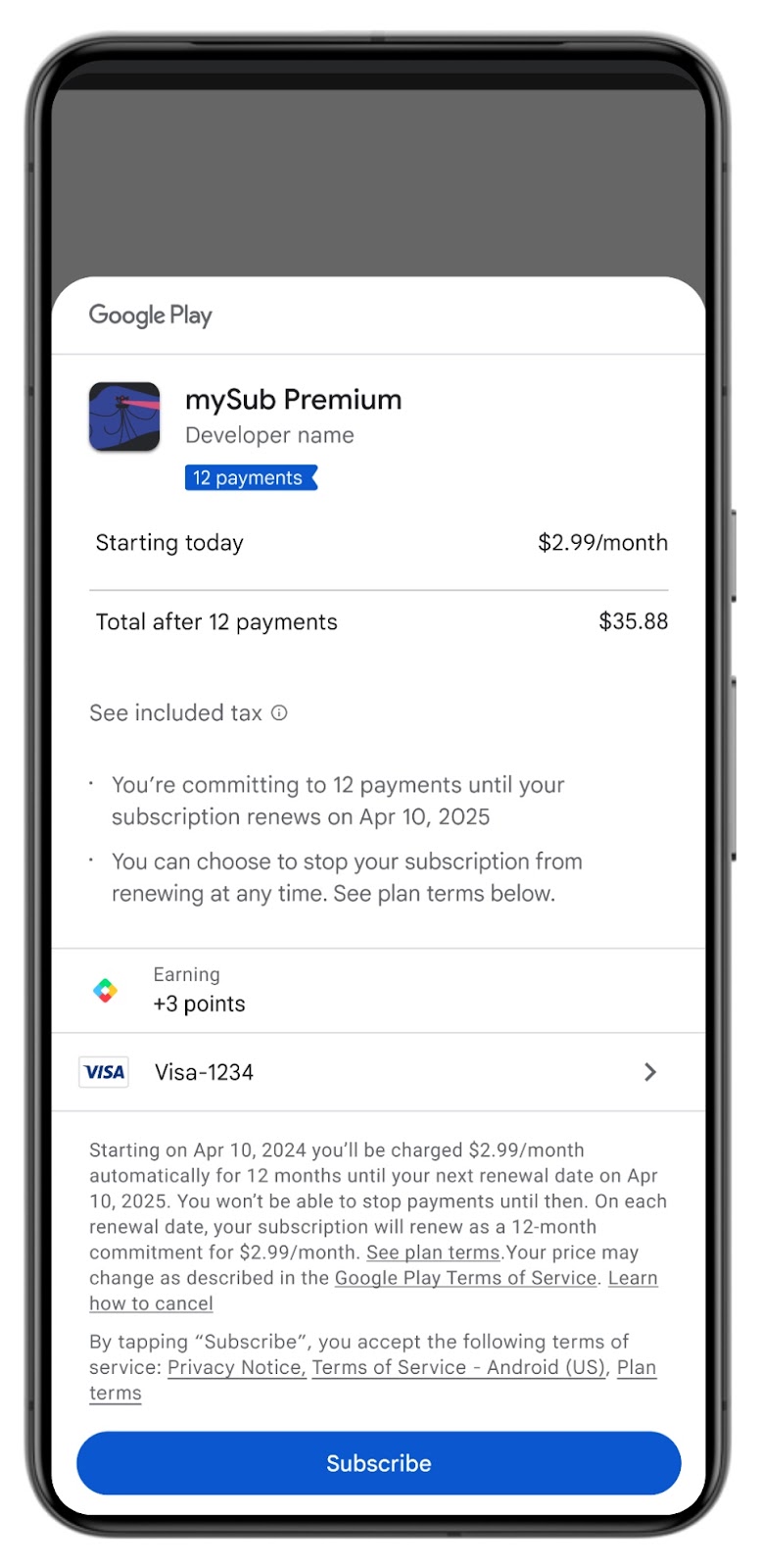Affiliate links on Android Authority may earn us a commission. Learn more.
Watch your wallets! Google has more than doubled Play Store's app price limit to $1,000

- Developers can now price their products on Google Play as high as $999.99.
- The previous app price limit was $400, set back in late 2015.
- The vast majority of apps will never approach the $1,000 price point, but some makers of enterprise software or service providers with yearly subscriptions might take advantage of this.
Many premium apps and paid apps for Android cost less than a cup of coffee, but there’s some software on Google Play that can cost dozens or even hundreds of dollars. Enterprise software and services with yearly subscriptions can be quite expensive, but there’s a limit to how much they can charge if they use Google Play’s billing system. That limit was originally $200 at the advent of Google Play, but it was raised to $400 way back in late 2015. Now, nearly eight and a half years later, Google has raised the app price limit to $1,000.
During the Google I/O developer conference last week, the Google Play team announced that developers can now price their products as high as 999.99 US dollars or the local equivalent. That’s a 150% increase from the previous price limit of $400 and reflects the maturity of the Google Play app ecosystem in 2024.
A snippet of the old (left) versus new (right) price range table for apps on Google Play. Source: Google.
Very few premium apps will charge anything close to $999.99, even for in-app purchases. Still, given that the option exists, there will undoubtedly be some apps that take advantage of this change. Novelty apps that exist solely to show others how wealthy you are will likely update their pricing to reflect Google Play’s new app pricing limit. Certain enterprise software or services that offer yearly subscriptions might also take advantage of this change, though you’ll be hard-pressed to find many examples.

Fisherpunk claims to be the “most expensive game” on Google Play, but at $400, it’s no longer the most expensive an app can be on the platform.
Since 2015, Google Play has significantly expanded the number of regions they distribute apps in. This is due to the explosive growth that Android has seen over the years. There are over three billion monthly active Android devices, a staggering figure that includes not just smartphones but also smartwatches, tablets, TVs, and automobiles. With this many users, it’s no surprise that there are at least some developers who are interested in charging up to $999.99 for their product and some users who are willing to pay that much.
To facilitate these kinds of transactions, Google Play, over the years, has greatly expanded billing tools and payment options. Notably, the company at I/O introduced a new installment subscriptions feature that lets developers offer users the option to pay over time for long-term subscriptions. Developers looking to charge $999.99 for an app or service could instead consider using this option to break up the payments over time, which Google says has already resulted in an 8% increase in total subscription sign-ups and a 4% increase in user spending.
Google Play brings in substantial revenue for Google, which is a big reason they invest so heavily in the platform. Developers who sell apps or digital goods using Google Play’s billing system are charged a service fee of 15% for the first $1 million in earnings they make each year. Once a developer’s total earnings exceed $1 million in a year, Google Play charges a 30% service fee on the remainder for the rest of the year. These terms are highly lucrative for Google, which means they stand a lot to gain from developers who charge higher amounts for Google Play content. Again, though, it remains to be seen whether any developers—besides those who make novelty apps—will actually do so.
Thank you for being part of our community. Read our Comment Policy before posting.
